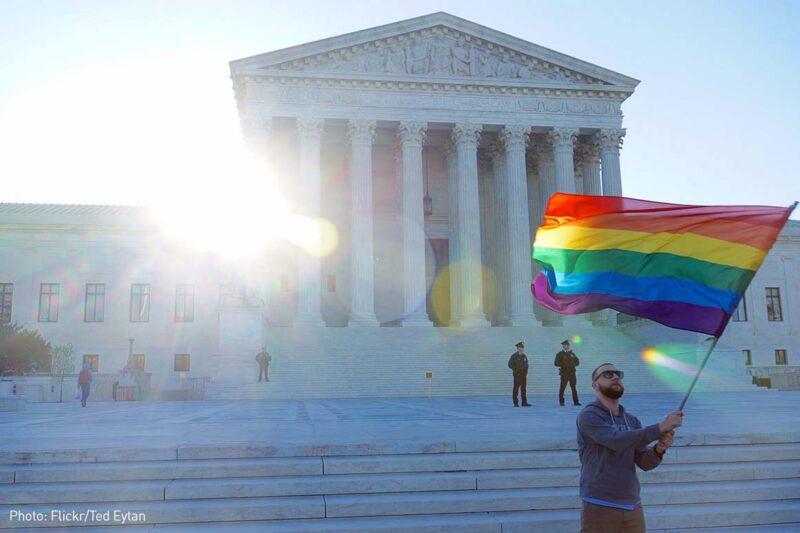The Fight Ahead: Whatโs Next in Attempts to Discriminate Against LGBT People in the Name of Religion?


โTwas the season before the new legislative session and all through the house, not a creature was stirring, except for anti-LGBT lawmakers trying to pass laws that allow discrimination in the name of religious freedom.
As we prep for whatโs to come in 2016, we must remember what we faced in 2015, when the Indiana Religious Freedom Restoration Act fight became a national and even that found its way into , , , and more.
In short, Gov. Mike Pence of Indiana gravely miscalculated where Hoosiers and Americans across the country were on whether religion should be used to discriminate. After the legislature passed SB 101 , the governor signed it into law in a private ceremony that included some . The ensuing controversy and relentless threw the state of Indiana into and Governor Pence into the most significant of his career (one from which he ). But more importantly, Indiana taught states like Montana, Nevada, Georgia, North Carolina, and Maine that the public will not countenance discrimination, no matter what its form or disguise. All of these states declined to pursue RFRA in 2015 after seeing what happened in Indiana.
The scorecard is overwhelmingly in our favor: Nearly 80 bills introduced in 2015 in more than half of all states, and all were defeated except seven.
Obergefell v. Hodges made marriage equality a reality nationwide. And across the country, same-sex couples have been marrying, largely . Unfortunately, some decided to use their religious beliefs to discriminate against others, including Kim Davis, a government clerk who not only refused to do her job, but also refused to let others in the office do their jobs. She claimed that her religious beliefs entitled her to this special treatment, to the detriment of same-sex couples and all taxpayers in Rowan County who pay her salary. And while the public is rejecting her efforts , some politicians are jumping onto the bandwagon.
Weโve seen this playbook before โ have laws on the books that allow some combination of doctors, hospitals, and nurses to refuse to provide necessary reproductive care to patients under the guise of religion. Our opponents have shown that they will not relent, to the point that even when you have a legal right, they will maneuver and scheme to undermine those rights. Itโs what my colleague Ian Thompson once called โ.โ
We are continuing to see such attempts in the post-Obergefell world, where there are demands for exemptions that would erode the promise of equality contained in Justice Kennedyโs . The RFRA fight is not yet over, as the 2015 bill in Georgia will be in play in 2016 in a brief, 40-day legislative session. In addition, we already are seeing legislation that would:
- allow governmental employees to pick and choose whom they will serve
- allow businesses to refuse service to same-sex couples
- permit discrimination by government-funded organizations based on their belief that โmarriage is or should be recognized as the union of one man or one woman.โ
We are also bracing ourselves for bills โ like โ that could make it harder for children in our adoption and foster care systems to find loving homes, and others that would require public colleges and universities to fund discriminatory student organizations, or allow licensed professionals to provide sub-standard health care without consequences.
The heated fight in Indiana and its impact across the country was no accident. Powerful , , and and all spoke out because they know that the public will hold their feet to the fire if they donโt. We are winning โ and can continue to win โ only if you stay vigilant.
Follow the 2016 state legislative movements on our bill tracking page here.

